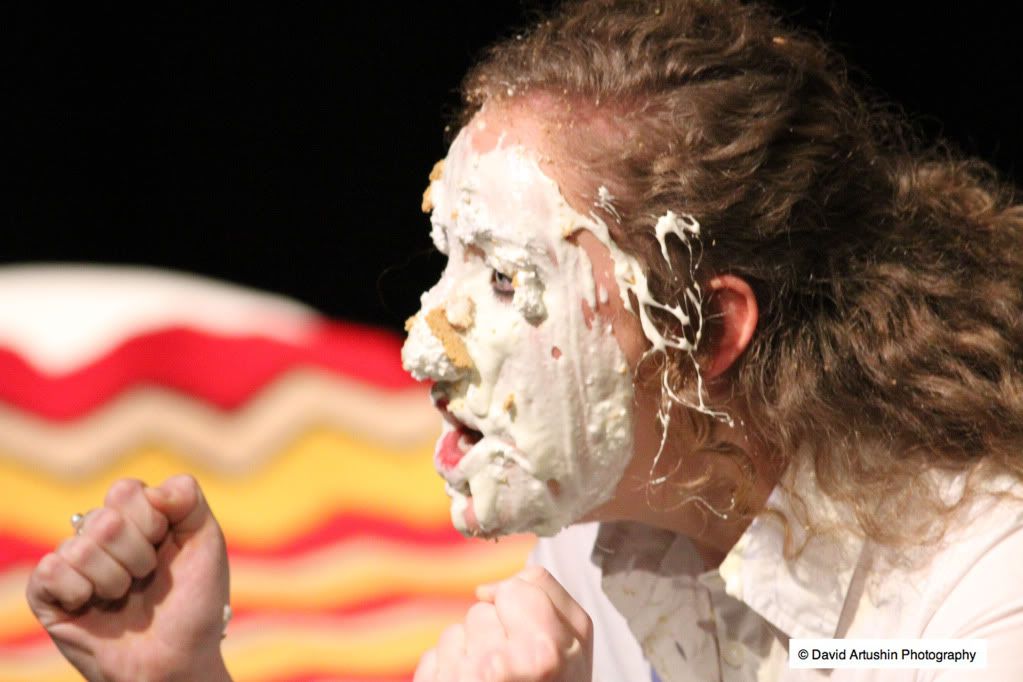Thursday night, January 26th, the small black-box theatre in Studio 1 of the Walgreen Drama Center filled with students and families who came to watch a handful of talented student-actors perform the romantic sci-fi play, Comic Potential, written by Alan Ayckbourn, which first premiered in the late 1990’s. The show began with a once-famous director, now a has-been and an alcoholic, working on the set of the cheesy soap opera he now works on with his crew of three “actoids” (actor androids–the new robotic invention that has replaced real human actors in the movie and television industry) and two lesbian lovers who film the episodes. The set was very simple, consisting of a bed, a table and chairs, and a video camera, yet very versatile, as the bed used in the hospital scene of the soap opera was converted to be used as the hotel room the two main characters stayed in later in the play.
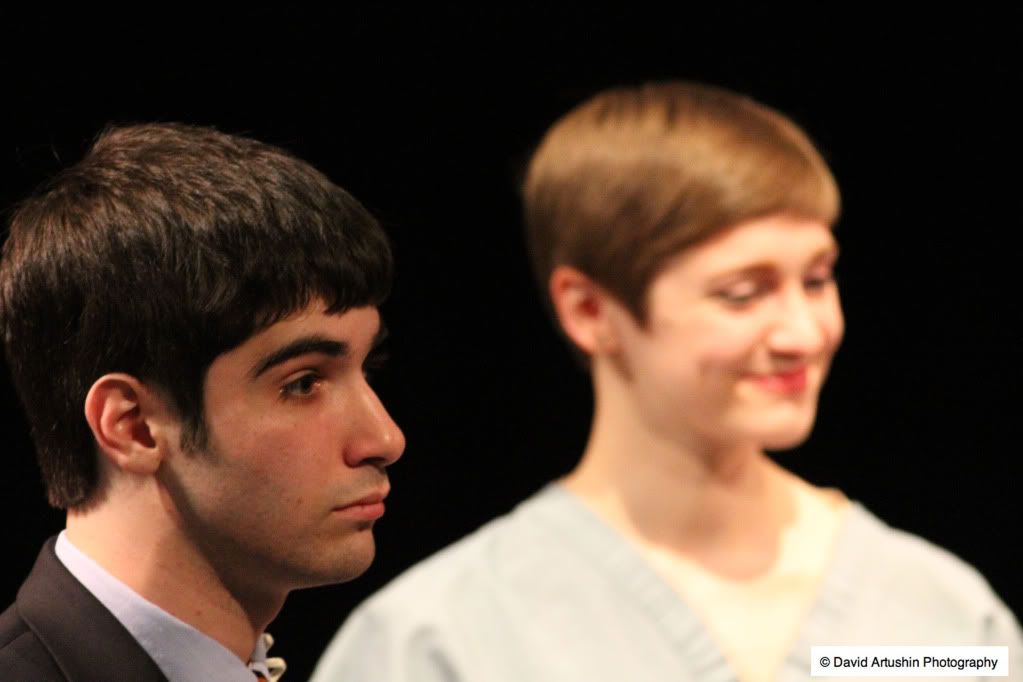
The main plot of the play concerned the relationship between a young aspiring writer, the nephew of the man who owns the production company, who wants to learn from the once-famous director whom he adores, and the female actoid, known as JC, with a sense of humor that defies the rules and mechanisms of her robotic composition. The young writer discovers her unique sense of humor and decides that he wants to work with her on an old-fashioned comedy sitcom, and asked the director to let him use JC in a comedy show that he will write and pitch to the producers to be shown on the network. The director reluctantly agrees, but when the idea is pitched to the bratty accountant who wanted to date the young writer and was hurt and offended that he chose JC over her, she turns down the idea and decides that the actoid should be “melted down”, her memory erased and system re-booted, so that her “faulty” sense of humor would be no more.

The young writer, having fallen in love with the funny actoid, convinces her to run away with him, to rescue her from being melted down. They go to a clothing store, to get her some normal-looking clothes so she can get rid of the nurse-outfit she was wearing from the soap opera hospital scene, and they then go in hiding at a hotel, where they are discovered at the hotel restaurant, and are forced to flee to a dingy motel in a bad neighborhood, where JC has a run-in with a prostitute who suggests to her that the young writer is only using her, like all men use women. JC then gets upset and fights with the young writer, when the pimp in charge of the working-girls in the hotel barges into the room and threatens them, thinking JC was one of his girls. The young writer defends JC and he gets stabbed, lying on the floor in a pool of blood.
JC returns to the television studio, thinking the young writer was dead, and decides to allow herself to be melted down, in order to forget all of the pain, feeling guilty that she allowed so much trouble to come to the young writer who she loved. But she changes her mind, and when she comes back the young writer is there, and they lovingly reunite. In the end, the bratty accountant loses her job and JC is offered the prestigious position instead. The young writer gets his chance at filming his sitcom, and all is well again in the lives of all the characters on set.
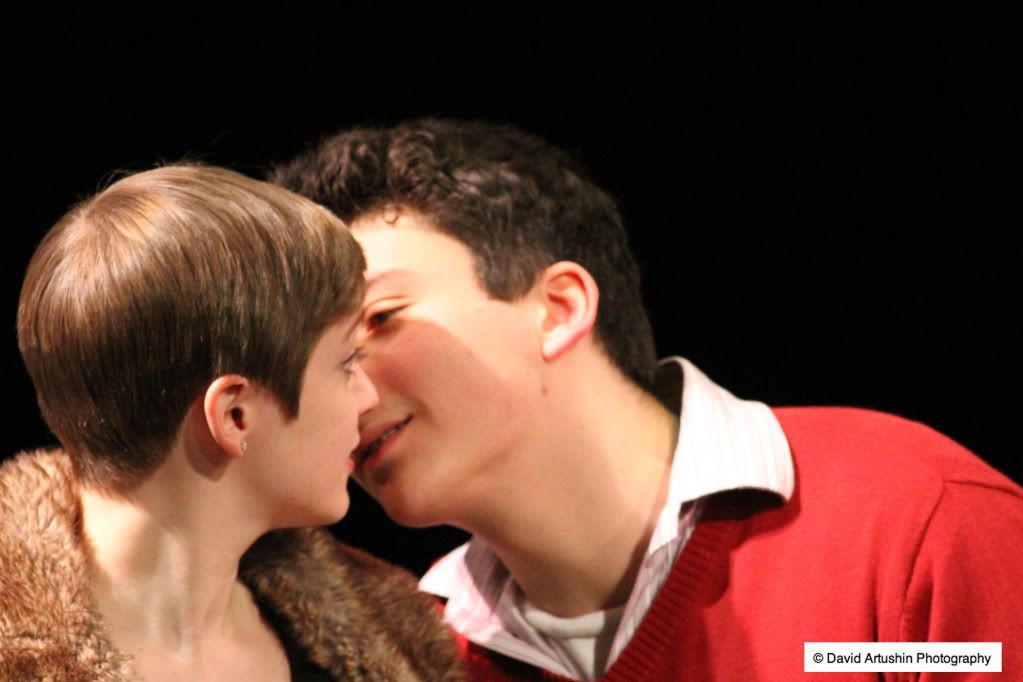
The play had an underlying satirical message concerning the entertainment industry, suggesting that the individuals who have money and manage money are truly in charge of what is created and presented to the public for entertainment, cheapening what should be artistic and meaningful to mere money-making, cookie-cutter productions. The actoids, man-made and purchased, suggest that actors are no more than blank canvases, bringing no personal creative input to their craft. The artist must sell-out, as the director did, in order to remain in the business, working on superficial projects, like the cheesy soap-opera, that will be profitable to the individuals and companies funding the project. Looking at most of the films that are being made and released to the movie theatres today, I can’t say I disagree with this premise.
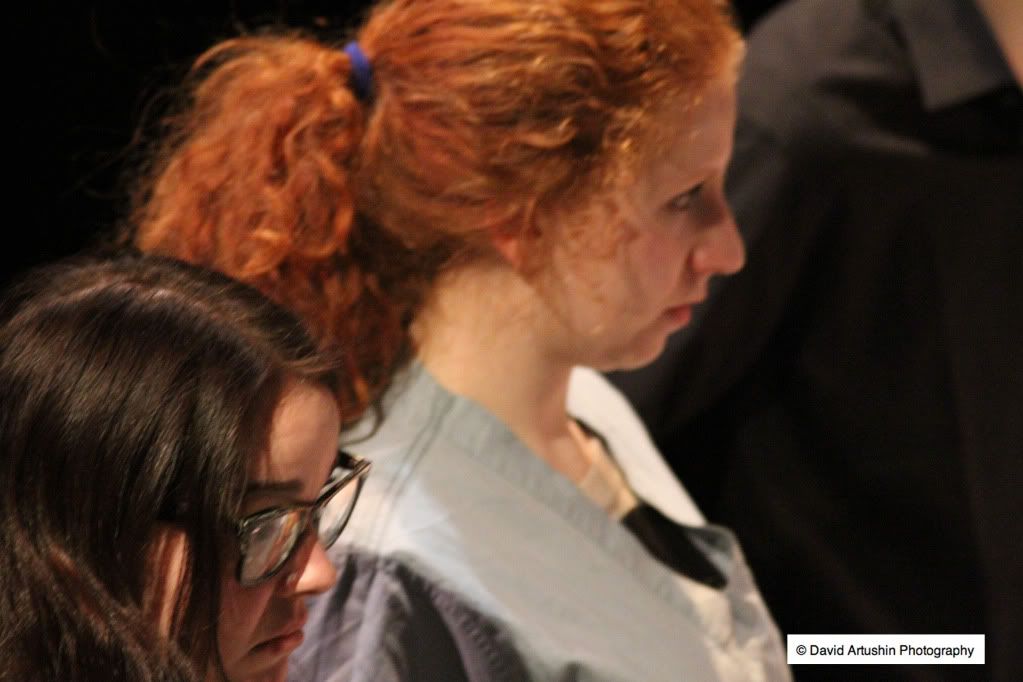
I enjoyed the premise of the story, and the actors did a wonderful job, especially in such an un-real, futuristic script. The actress who played the role of JC did an especially incredible job. She did really well at convincing you she was a robot, while still being humanly real and accessible, relate-able. She was very impressive in switching between dialects and characters in the many scenes where she recalled the characters she had previously played in her history as an actoid. She was very funny.
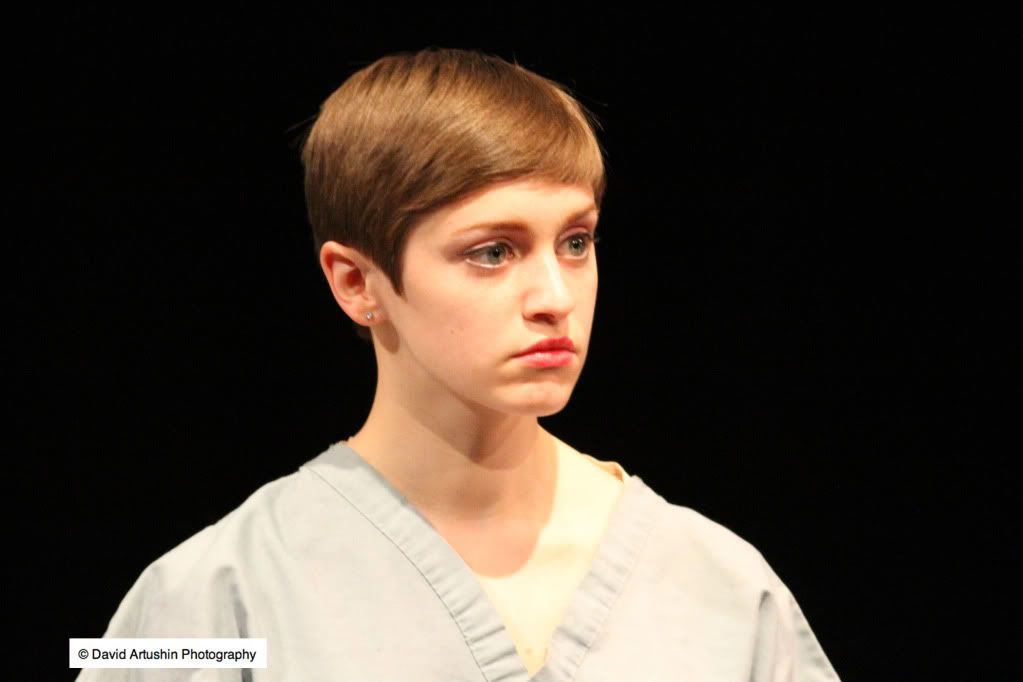
Personally, I think the play started out strong, and then the story fell off at the end. This is no fault of the actors, but the script itself. I disagree that the love story was a necessary part of the play. I think it would have possibly been more interesting without it. It almost made the play into the very cookie-cutter love story that is profitable and prominent in entertainment media that the play advises against. The happy ending also didn’t seem fitting, and I was left wondering if it would have been more interesting to have the actoid melted down, to bring back the original point of the current state of the entertainment industry, leaving the audience with that premise in mind, bringing the story full-circle. If I were to re-write the story, there are definitely some things I would have done differently.
Overall, I enjoyed going to see a free play on Thursday night, and I would highly recommend going to check out other plays put on by Basement Arts some time this semester. The actors are very talented, and the script was interesting and unique. It was a very laid-back atmosphere, and an enjoyable way to spend a Thursday evening. For more information on Comic Potential, as well as a schedule of upcoming productions being put on by Basement Arts, check out their website: http://basement.studentorgs.umich.edu.
